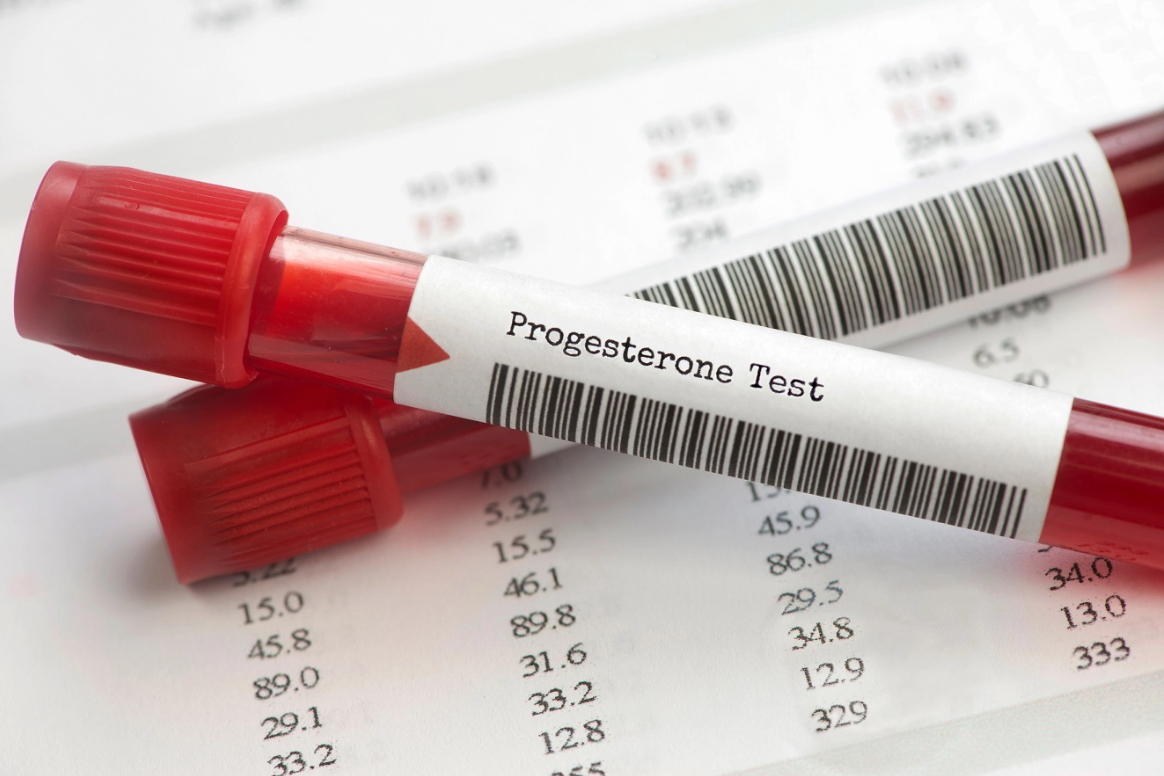FamiBlog
Progesterone standards in pregnancy
Progesterone is a hormone that is essential for the normal development of pregnancy from the first days of pregnancy. In some cases, a progesterone test is ordered for expectant mothers. Sometimes supplementation is also required. Find out about the normal values for progesterone in pregnancy and the risk of too low a value.

07 August 2019
When is progesterone tested in pregnancy?
Progesterone in pregnancy is not a mandatory test for every expectant mother. To perform the test, the doctor should have certain indications for it. These include menstrual irregularities, problems getting pregnant or a miscarriage in the past. In most cases, when a doctor orders a progesterone test, he wants to confirm or rule out a so-called luteal insufficiency, which can be the cause of these disorders. In the later weeks of pregnancy, progesterone testing tends not to be done, and progesterone supplementation is considered depending on the presence of indications, such as a past premature birth.
What are the progesterone levels in pregnancy?
If the gynecologist recommends a progesterone test, he should evaluate the results. This is because he will be able to relate them to the clinical condition and suggest appropriate further action to the expectant mother. Progesterone norms vary from laboratory to laboratory.
The norms for progesterone also vary depending on the week of pregnancy. Initially, the hormone is produced by the corpus luteum at a rate of 25-50 mg per 24 hours. This corresponds to an average serum concentration of 8-48 ng/ml. At the time of delivery, the placenta produces about 250 mg of progesterone per day, with concentrations reaching 200 ng/ml. Interestingly, progesterone production is higher in twin pregnancies, up to 600 mg/day.
Too little progesterone during pregnancy
Too low a level of progesterone can make it difficult for pregnancy to occur. It is involved in the implantation of the embryo and also affects the mother's tolerance to the tissues of the fetus. In expectant mothers, low progesterone levels can lead to various complications, such as premature birth. Adequate progesterone levels keep the uterus relaxed so that labor does not begin too early. If progesterone levels are too low, the gynecologist can prescribe a progesterone supplement.
Progesterone in pregnancy - Duphaston and lutein
Pregnant women are often prescribed Duphaston or Lutein by their gynecologist. These are two preparations that increase progesterone levels, the difference being that Duphaston, unlike Lutein, is its synthetic counterpart, Dydrogesterone. Despite the similarities between these drugs, they are prescribed for specific (and different from each other) situations. Duphastone is most commonly used in women who are experiencing what is called luteal insufficiency early in pregnancy. Lutein, on the other hand, is used for expectant mothers with impending preterm birth. In this case, it is administered vaginally and has a topical effect. Progesterone should not be taken as a sole supplement, however, due in part to contraindications to its use. These include, for example, active thromboembolic disease or breast cancer. Progesterone may also affect water retention in the body or aggravate heart failure and migraine headaches.
Sie interessieren sich auch für:
Intimate infections during pregnancy
Many expectant mothers struggle with the annoying symptoms of intimate infections during...
Sore throat during pregnancy
A sore throat is a relatively common condition that also affects pregnant women. However, not all...
Eating raw meat during pregnancy
During pregnancy, the expectant mother has many desires. But not all of them can be freely...
Stem cells and cord blood
Bone marrow was the primary source of stem cells (bone marrow transplantation involves...































